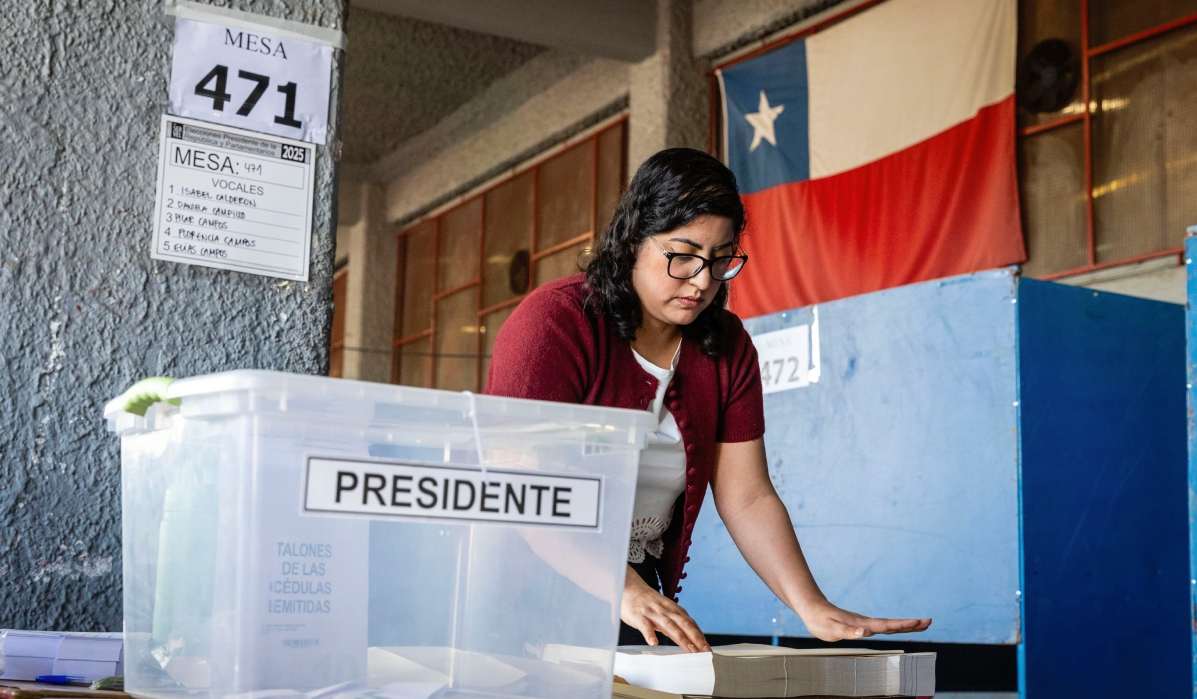At first glance, Sunday’s results appear to signal a Copernican shift in the country’s values, indicating—according to all polls based on plausible second-round scenarios—a potential return of the right to power. This conclusion, however, may be misleading.
In my opinion, what happened is that a significant number of Chileans abandoned the left, and faced with the implosion of the political center, found no other space available than the right. People did not become “right-wing”; rather, they moved away from the left, at least for now. While there is a conservative shift on issues of order and security, the evidence does not show a structural shift to the right in broader values; what prevails is a reaction to political performance rather than a profound ideological shift. These elections should be read more as a failure of the left than as a triumph of the right.

This raises the inevitable question: where did Boric’s government fail that so many of its supporters abandoned it? To answer this, unfortunately, we must go back to the Concertación governments since the transition to democracy.
During the first fifteen years, we experienced what was labeled “the Chilean miracle”: human development, economic growth, the rule of law, and low levels of corruption. But that same success became a vulnerability with the rapid expansion of precarious middle classes and the persistence of inherited and rigid institutions (e.g., the electoral system), unable to absorb new citizen demands.
If I had to pinpoint a turning point, I would place it well before the social unrest of 2019, specifically during President Bachelet’s second term (2014–2018). During that period, Bachelet promoted an almost irresponsible flood of simultaneous reforms—tax, educational, labor, electoral, and even constitutional (Encuentros Locales Autoconvocados, cabildos)—which awakened latent tensions and generated new ones. The intensity of the reform cycle was such that even the most expert analysts had difficulty following the details and implications of each initiative. Rather than being the direct cause of the subsequent instability, the simultaneous reforms of Bachelet II acted as a catalyst that exposed tensions that had been building for years. In many ways, they stirred up a hornet’s nest.
It was precisely during the following administration, Piñera II (2018–2022), that this chain of tensions finally exploded in the well-known “social uprising” of October 2019. This crisis could only be contained by the outbreak of the pandemic, which in a way fit the then-government like a glove.
This brings us to the Boric administration, elected with a huge number of “borrowed” votes from the center, in a country exhausted by instability. His administration aligned itself with the reformist momentum of the first Constitutional Convention, whose draft—more akin to a disjointed collage of changes driven by a mosaic of fragmented groups under the mirage of a non-existent majority—ended up being a spectacular failure and a missed opportunity. By that time, large sectors of the citizenry were already hungry for stability.
That was the first major blow for Boric, almost a knockout. Then came the second constitutional process, which also failed. Although the text was also rejected, that second rejection was seen as a triumph for the right, because it meant maintaining the institutional status quo.
Although it does not translate into political offerings, a large sector of Chilean society remains in the center of the ideological spectrum. The emptying of the centrist offering—especially sectors of the former Concertación—electorally subsidized Boric in 2021 and today subsidizes the right. This suggests a problem of political offerings, not a profound ideological realignment. The collapse of the center is not due to a disappearance of its voters, but to the inability of its parties to articulate a credible moderate project after years of institutional erosion, internal crises, and loss of narrative. The right not only capitalized on the emptying of the center; it also managed to articulate an effective narrative of order, stability, and institutional control in a country saturated with uncertainty.
Boric believed he had a mandate for systemic transformation and failed to recognize that, after so many years of tension, the public was exhausted by reforms. The government combined a lack of executive experience with an overestimation of its reformist mandate, which led to early strategic errors and an accelerated loss of political capital. At first, his government was perceived as naive—they had never governed before—but when naivety quickly gave way to arrogance, the public began to distance itself. Unlike Piñera or Bachelet, Boric had only a couple of weeks of “honeymoon” period; after that, his approval rating and that of his government turned negative.
It was at that moment that the old Concertación lent a hand and helped stabilize the administration with the arrival of two “superministers” from its historical DNA: Mario Marcel in the Treasury and Carolina Tohá in the Interior.
One of the issues that caused the most tension for the government was security, which consistently appears among the main concerns of citizens in all polls. It is not necessarily that there is more crime—the debate is complex—but rather that violence has mutated into forms previously unknown in Chile (drug trafficking, Tren de Aragua, organized crime). In politics, perception weighs as much or more than statistics: security became the main prism through which citizens evaluated the government. In this area, the right managed to position itself as the most credible force to regain institutional control.
The left must engage in profound self-criticism, and the right must resist the temptation to believe that these majorities belong to it. The left faces a deep crisis of credibility and strategic reading of the political moment; the right, for its part, would be wrong to interpret its current support as a lasting conversion, as it rests more on citizen exhaustion than on stable ideological adherence.













